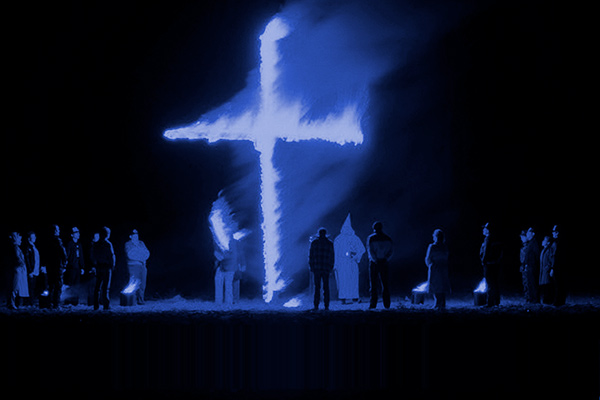Case Summary:
Virginia v. Black (2003)
True Threats

The image of a burning cross is still one that inspires fear and anger among black and Jewish Americans, and it is an unfortunate fact that it has not been left in the past with other ugly relics. In 1998, three men – Barry Black, Richard Elliott, and Jonathan O’Mara – were arrested and convicted separately of cross burning, violating a Virginia state statute prohibiting cross burning on the property of another or in public places with the intent to intimidate. They appealed their cases to the Virginia Supreme Court, arguing that the statute was unconstitutional, because it treated the act of cross burning itself as the only action required to prove intent to intimidate. The court agreed with them.
On appeal, the Supreme Court held – in a 7-2 plurality opinion authored by Justice Sandra Day O’Connor – that a state may ban cross burning carried out with the intent to intimidate, but the provision of the Virginia statute treating the act of cross burning as prima facie evidence of intent to intimidate was unconstitutional. A cross burning may be carried out for a reason other than intent to intimidate, according to the court, such as at a political rally. Even if the act of cross burning “arouses a sense of anger or hatred among the vast majority of citizens,” that “anger or hatred” is not enough to prohibit the burning. Only “cross burnings done with the intent to intimidate” are prohibited under the First Amendment, “because burning a cross is a particularly virulent form of intimidation.”
Additional Resources